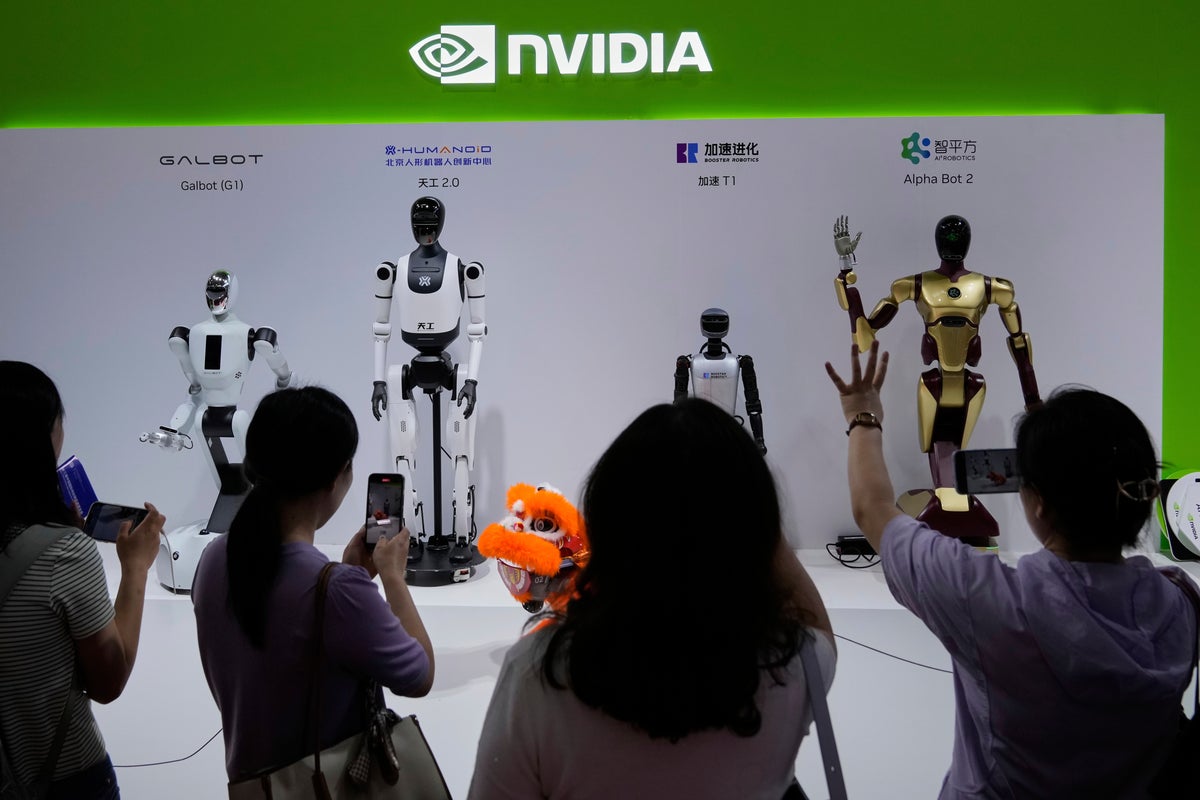Your support helps us to tell the story
From reproductive rights to climate change to Big Tech, The Independent is on the ground when the story is developing. Whether it’s investigating the financials of Elon Musk’s pro-Trump PAC or producing our latest documentary, ‘The A Word’, which shines a light on the American women fighting for reproductive rights, we know how important it is to parse out the facts from the messaging.
At such a critical moment in US history, we need reporters on the ground. Your donation allows us to keep sending journalists to speak to both sides of the story.
The Independent is trusted by Americans across the entire political spectrum. And unlike many other quality news outlets, we choose not to lock Americans out of our reporting and analysis with paywalls. We believe quality journalism should be available to everyone, paid for by those who can afford it.
Your support makes all the difference.Read more
Nvidia and AMD agreed to share 15% of their revenues from chip sales to China with the U.S. government, a U.S. government official has confirmed.
President Donald Trump‘s administration had halted the sale of advanced computer chips to China back in in April, but Nvidia and AMD revealed in July that Washington would allow them to resume sales of the H20 and MI308 chips, which are used in artificial intelligence development.
The official, who insisted on anonymity to discuss a policy not yet formally announced, confirmed to The Associated Press the revenue sharing terms of the deal, and said the broad strokes of the initial report by The Financial Times were accurate.
The FT reports that Nvidia and AMD agreed to the financial arrangement as a condition for obtaining export license to resume sales to China.
“We follow rules the U.S. government sets for our participation in worldwide markets. While we haven’t shipped H20 to China for months, we hope export control rules will let America compete in China and worldwide,” Nvidia wrote in a statement to the AP. “America cannot repeat 5G and lose telecommunication leadership. America’s AI tech stack can be the world’s standard if we race.”
AMD did not immediately reply to a request for comment.
Restrictions on sales of advanced chips to China have been central to the AI race between the world’s two largest economic powers, but such controls are also controversial. Proponents argue that these restrictions are necessary to slow China down enough to allow U.S. companies to keep their lead. Meanwhile, opponents say the export controls have loopholes — and could still spur innovation. The emergence of China’s DeepSeek AI chatbot in January particularly renewed concerns over how China might use advanced chips to help develop its own AI capabilities.
